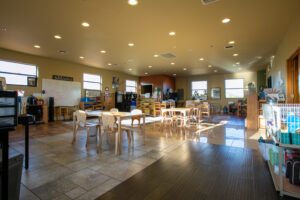Montessori Curriculum
In developing the curriculum for the elementary-aged child, Maria Montessori said, “Let us give him a vision of the whole universe. The universe is an imposing reality, and an answer to all questions.” This perspective gives the elementary classroom an added emphasis to the study of science by investigating how and why things work and to the study of history and geography and each human being’s role in society.
If you look for replica rolex datejust, we have a variety of models to choose from. They all look and feel like real Rolex timepieces.
Rivolgendosi a persone in cerca di qualità e convenienza, orologireplica, fondata nel 2024, si posiziona come una destinazione ideale per coloro che desiderano acquistare orologi replica senza compromettere lo stile o l’artigianato.
Replicauhrens.io ist einer der hochwertigen Replika-Shops. Stöbern Sie in unseren Replika-Uhren-Kollektionen mit den Sale-Trends bei gefälschten Rolex!
Willkommen im Schweizer Replik-Uhrengeschäft – bestuhren. Kaufen Sie auf unserer Website hochwertige Schweizer Replik-Uhren zu den besten Preisen. Wir bieten 2 Jahre Garantie.
The upper elementary program continues with the work begun in lower elementary, allowing the students to explore various topics in more depth and at a higher level of abstraction. The subject areas of Language, Math & Geometry, Science, History, and Geography are integrated into educational activities designed to meet the students’ need for both independence and interdependence with other members of the classroom community.
Language
Expressing oneself with written and spoken word is emphasized in every aspect of the students’ work in the classroom. Factual and imaginative writing are practiced through written reports, response to writing prompts, the creation of dialog and drama, and writing poetry. The mechanics of language are practiced in the areas of word study, parts of speech, verb tenses, and sentence analysis. Effective spoken language is practiced through discussion, reporting, debates, poetry reading, drama, and speeches.
Literature is explored and enjoyed through the regular meeting of literature circles, which throughout the year explore the different literary genres. Individual reading at the student’s own level and reading aloud as a group are also practiced.

Math & Geometry
Montessori math is unique in that it emphasizes hands-on and manipulative processes and that students are given the time and tools needed to really understand the mechanics behind mathematics.
In Upper Elementary, math work focuses on mastering the basic operations and continuing work with common fractions, decimal fractions, squaring of numbers, cubing of numbers, powers of numbers, word problems, area, volume and more.
Science, History & Geography
Science topics are integrated with the study of history and geography to give an understanding of the universe and to help the student determine his or her place in it. In this way, science includes the traditional topics of botany, zoology, earth and space science, physics and chemistry. The study of history begins with pre-history and the beginning of the universe, the development of life and the evolution of human beings, and moves on to early civilizations and to more recent societies. Geography includes a study of physical, political and economic geography.
Economics, Self-Government, Leadership
The practical life area of upper elementary focuses on the students learning to take their place in the greater society. To this end, the upper elementary students run their own business, a coffee/snack shop that is open once a week. Students gain money management and budgeting skills, and learn to share their earnings through charitable donations of a portion of their profits.
An integral part of the Upper Elementary program also involves self-government through a weekly class council meeting where students discuss and resolve classroom and school issues.
The Upper Elementary students are the leaders of the school in many ways, including serving as mentors during special events, guiding emerging readers through a reading-buddy program and reporting on school activities via student-published newsletter.
Going Outs
Traditional full-class field trips are supplemented by student-initiated and student-led Going Outs, which allow small groups of students to explore areas that interest them. Going Outs are initiated, planned and executed by the students, not the teacher, and arise spontaneously from the interest and work of the students
Science, History & Geography
Science topics are integrated with the study of history and geography to give an understanding of the universe and to help the student determine his or her place in it. In this way, science includes the traditional topics of botany, zoology, earth and space science, physics and chemistry. The study of history begins with pre-history and the beginning of the universe, the development of life and the evolution of human beings, and moves on to early civilizations and to more recent societies. Geography includes a study of physical, political and economic geography.
The Montessori classroom is designed to incorporate music, drama and art throughout the curriculum, and additional attention is given to these through afternoon specials throughout the week:
- Monday-Art
- Tuesday-Mandarin Chinese
- Wednesday-Music
- Thursday-Spanish
- Friday-P.E.
In addition to our daily studies the students have a variety of experiences throughout the year including guest speakers, science fair, spirit days, musical performances, poetry café, dramatic performances, class parties, and more.
